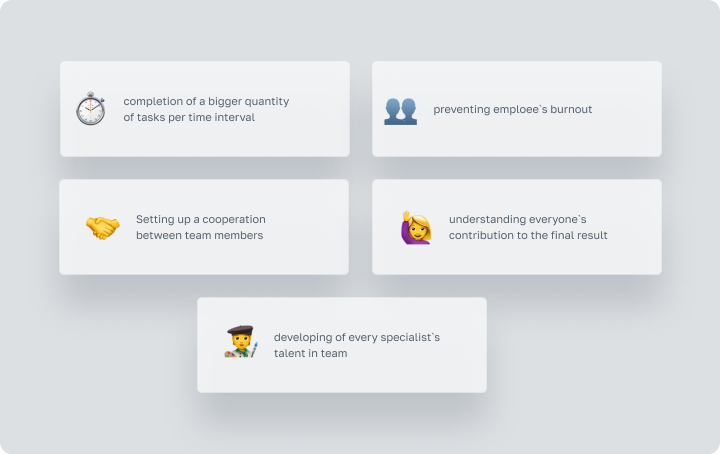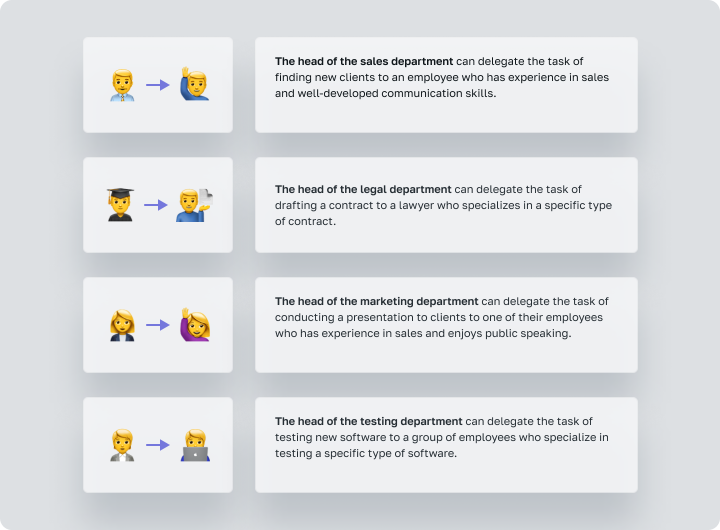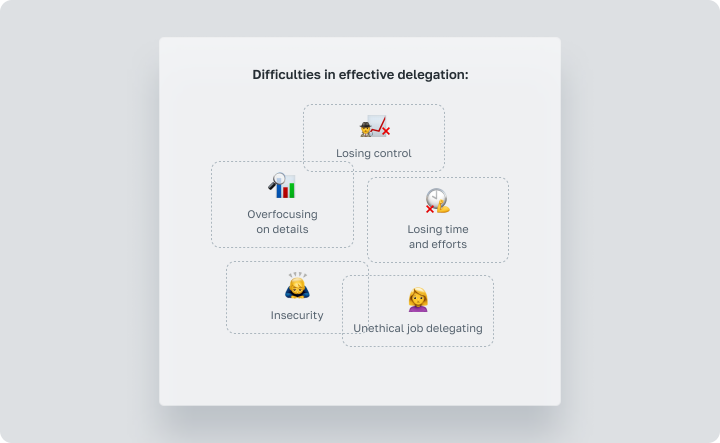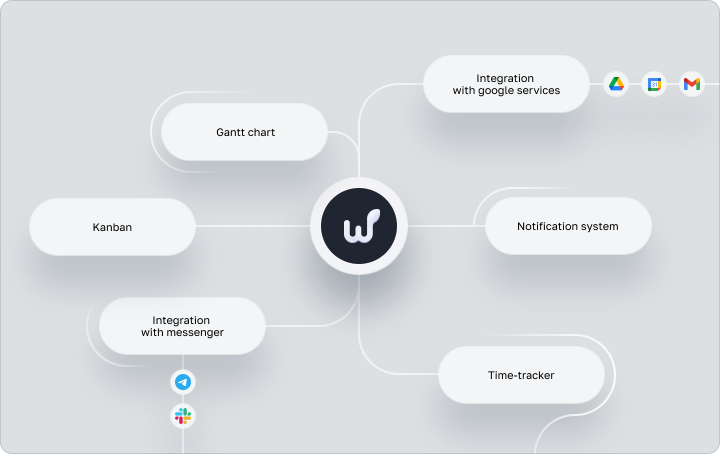Effective delegation is crucial for the success of individual projects and businesses as a whole. Let's explore the key objectives of delegation and what managers should delegate to optimize team performance and business outcomes.
What is Delegation?
The common saying "If you want something done right, do it yourself" can be a trap for perfectionist managers. As business complexity grows, delegation becomes essential to distribute workload and prevent bottlenecks that can hinder processes. Effective delegation is key if you aim for growth.
Benefits of Delegation
Hesitant to move away from micromanagement? Here are compelling reasons to embrace delegation:

- Efficiency: Delegation helps optimize company resources, crucial for setting strategic goals and action plans.
- Skill Development: Delegates tasks to those best suited, enhancing job satisfaction and performance.
- Time Management: Frees up management's time to focus on tasks that cannot be delegated.
Principles of Delegation
Effective delegation is based on clear principles that serve both as goals and guidelines:- Clear Definition of Tasks: Managers must articulate tasks clearly so subordinates know exactly what is expected.
- Choosing the Right Person: It’s crucial to delegate tasks to employees who possess the necessary skills and motivation.
- Authority Delegation: Employees should be given the authority to make decisions related to their tasks to act effectively within their roles.
- Feedback: Regular feedback helps employees understand their performance and how they can improve.
- Managerial Time-Saving: Delegation should ultimately free up managerial time for high-priority tasks.
Examples of Effective Delegation
Practical examples from various industries illustrate these principles and show the relevance of delegation across different company types and sectors.
How to Start Delegating in Five Steps
- Break Down Projects: Divide complex projects into simpler, manageable tasks.
- Distribute Responsibilities: Assign tasks based on individual strengths and preferences.
- Synchronize Team Efforts: Ensure everyone understands the goals and their roles.
- Set Up Communication: Regular communication helps prevent misunderstandings and aligns workflows.
- Monitor Progress: Use project management tools to track progress and adjust as necessary.
Challenges to Effective Delegation
Effective delegation is often hindered by:
- Fear of losing control or authority.
- Concern that delegation is too time-consuming.
- A tendency to focus too much on details.
- Concerns over ethics or fairness.
- Doubts about task completion to standards.
Worksection: A Tool for Effective Delegation
Worksection is designed to facilitate complex processes and enable efficient delegation of authority. With features tailored to various stages of project and task management, Worksection allows you to:
- Create and customize projects and tasks.
- Assign tasks to individuals or teams.
- Track progress with charts, timelines, and reports.
- Facilitate communication among project participants.

Delegating with Worksection is not just possible; it’s advantageous.